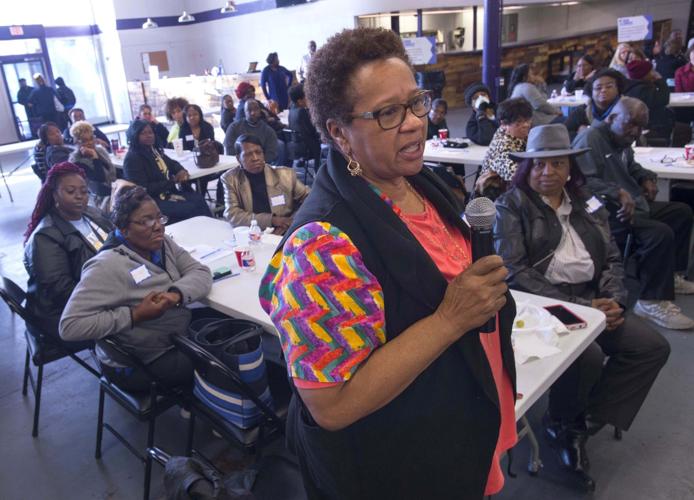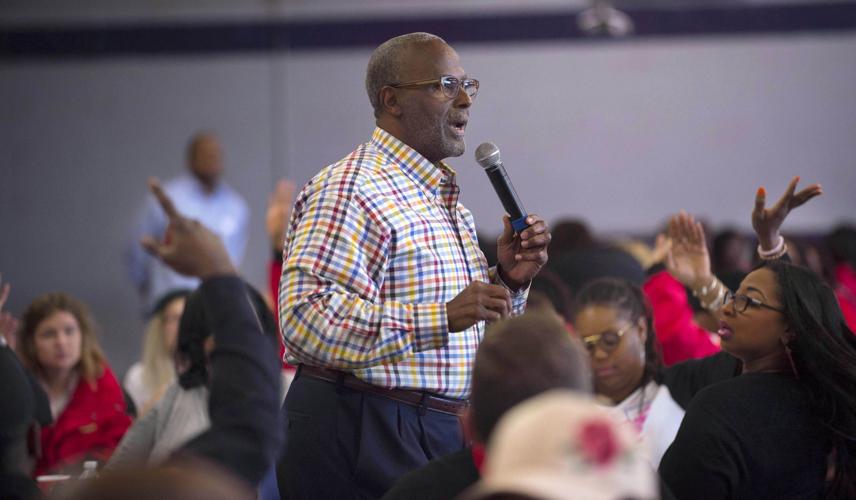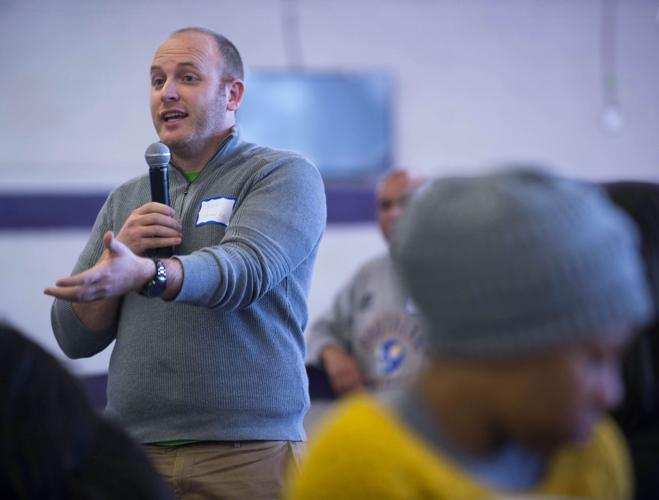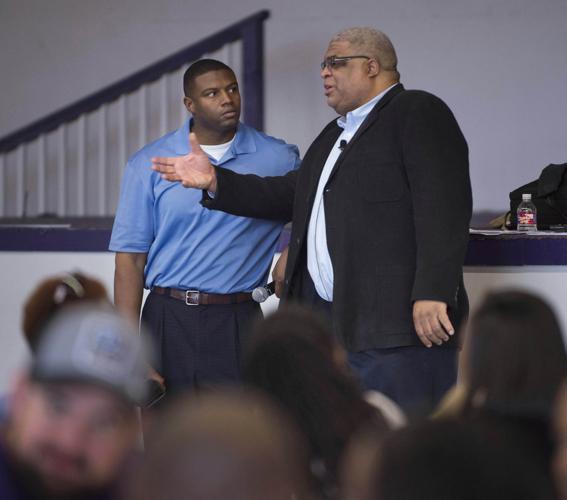An effort to form a band of 1,000 mentors in Baton Rouge got underway Saturday with a program focused on training people to better understand issues faced by young black men and finding ways to help them succeed.
About 400 people who will be part of the MentoringBR network attended the daylong event. Another session will be held on Jan. 20.
MentoringBR is led by the Urban Congress on African American Males in Baton Rouge, which is an initiative of the nonprofit MetroMorphosis.
Many of those participating are from churches and community service groups such as City Year, 100 Black Men and Big Buddy. MentoringBR will help those who are not part of a specific organization find opportunities to apply their skills.
“What we want to do is to strengthen their awareness of how they engage with black boys in our community,” said Raymond Jetson, president and CEO of MetroMorphosis.
The goal is for the mentor trainees to learn more about potential struggles affecting MentoringBR’s target demographic — such as racial discrimination, lower graduation rates and higher incarceration rates — and how they can inspire them to overcome those obstacles.
“Not every African-American boy is dropping out of school or going to jail,” Jetson said. “There are boys and men in our community doing very positive things, and there are lots of people in our community who are willing to give of themselves.”
“Every person who is experiencing some degree of success or accomplishment in life can point to somebody or somebodies who poured into them in some way or another,” he added.
The mayor and Metro Council, and many law enforcement agencies, have been tangled in some controversies over federal grants and the anti-viole…
Brian Sales, director of training and technical assistance for a national organization called MENTOR, led Saturday’s event, which was held at an East Baton Rouge Council on Aging facility on Florida Boulevard.
In activities and group discussions, participants talked at length about respecting different cultural backgrounds and understanding how they influence people's actions and beliefs.
One topic that came up was the relationship between Baton Rouge’s black residents and law enforcement, with several people saying that is a major concern of black men.
Kevin Jones, a City Year member, said many of the young people he works with fear police officers.
“You’re having to have these really deep conversations with kids about privilege and about being black and what that entails,” Jones said.
Those are "deeper, systemic issues" that mentors working with young black men need to explore, said Arquavious Gordon, another City Year member.
Annmarie Valentin, also of City Year, said the event provided attendees a chance to share ideas on tailoring their strategies to address issues that are unique to the black community.
“It’s important for us to learn more about mentoring them, especially when a lot of our students (in City Year) are African-American boys and girls,” she said.
Jetson said anyone interested in joining MentoringBR should come to the Jan. 20 training session. People can register at mentoringbr.org.















